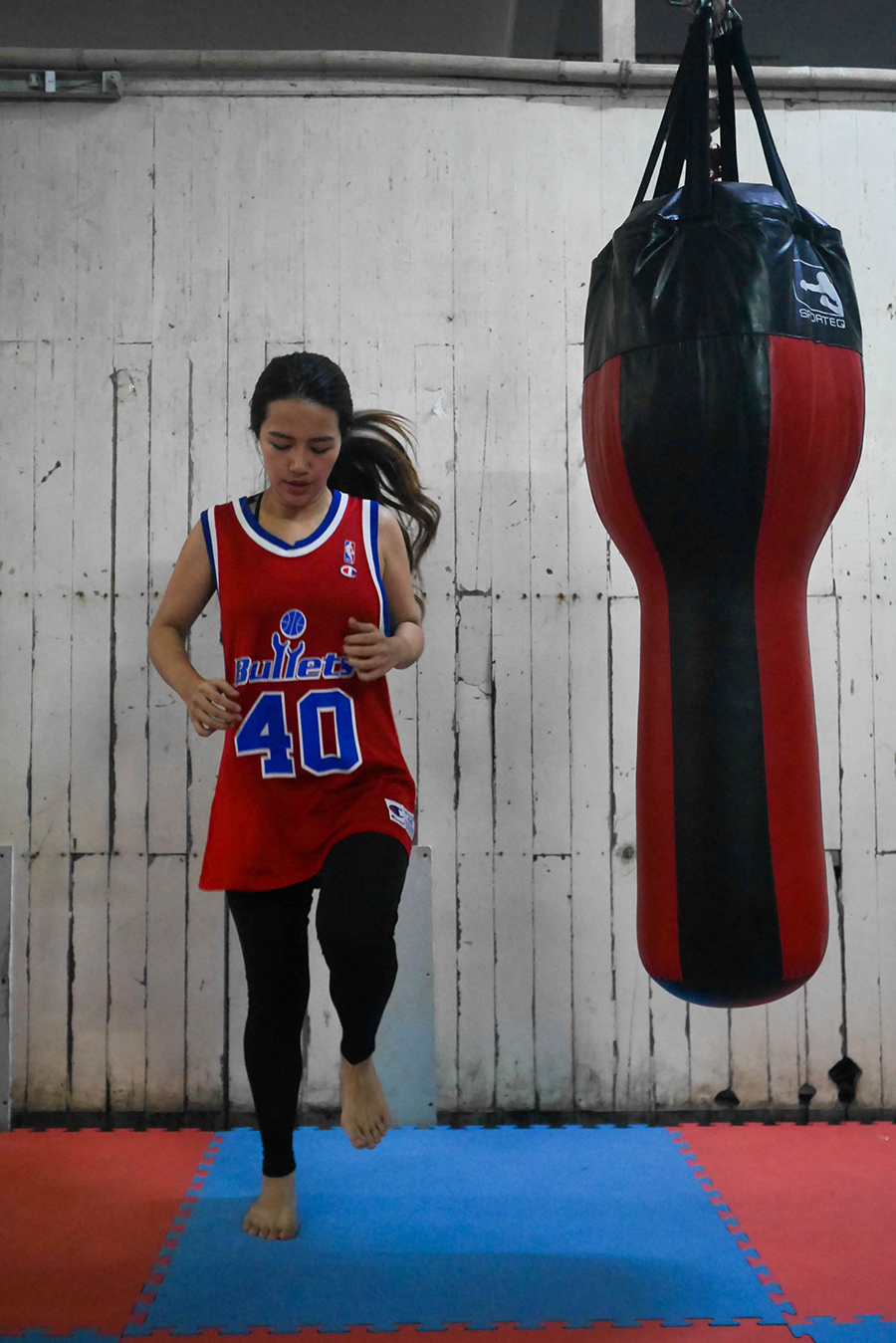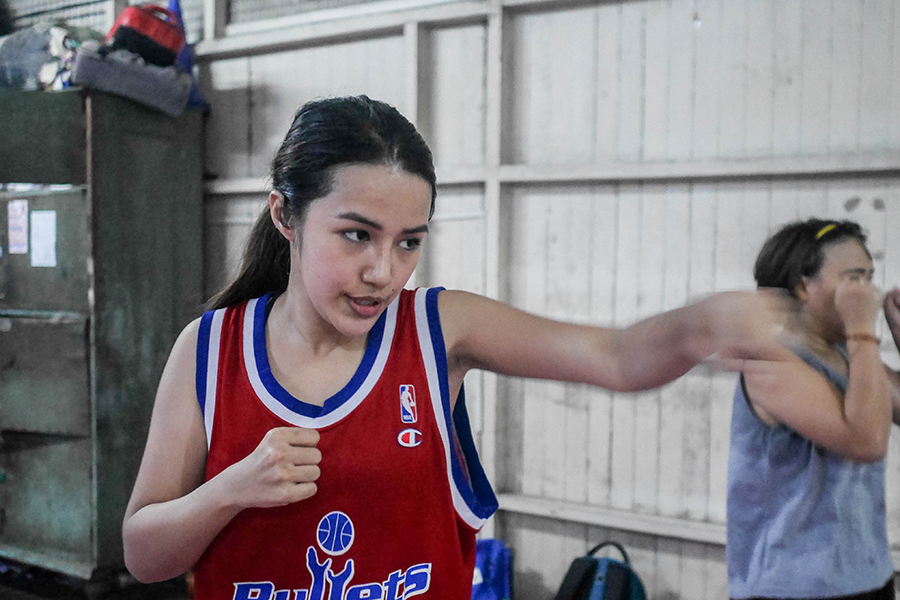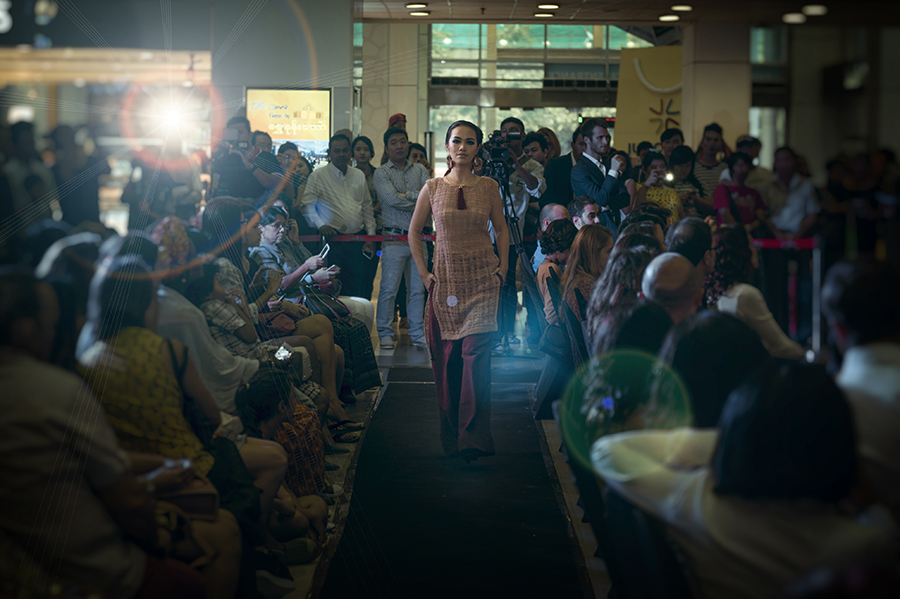YANGON — In a small gymnasium at a mall in downtown Yangon, a dozen women and girls dressed in workout attire sparred in pairs and practiced escaping while being pinned to the ground. A woman dressed in jeans and a fancy top supervised. It is not unusual for the girls to see their trainer Michelle dressed up and sporting makeup while observing the class.
Michelle aka May Shell in Burmese, 24, is a co-founder of the Myanmar Women’s Self-defense Center—one of the few of its kind in Yangon—where women learn legal practices, verbal assertiveness, and self-defense to protect themselves from physical and sexual assaults. She is also an accomplished model. She came to the club on the final day of a course to present certificates to the trainees.

“I like dressing up but at the same time, I like fighting,” Michelle said. “It’s difficult to balance the two.”
At 17, she became interested in kickboxing and joined a fight club – and for good reason.
Her first experience with sexual harassment was on a public bus in Yangon as a teenager. A male passenger wedged himself into the space next to her and rubbed his erect penis on her back. She did not know what harassment was at the time and she stayed silent.
While in college, she experienced men groping her on public buses and catcalling her on the street, which made her lose confidence. She grew afraid of going outside.
Her brothers suggested that it was her attire that drew the unwanted attention. She knew that it was not her fault but did not know how to respond. Her friends were equally ill equipped to advise her, she said.
“I knew I shouldn’t have stayed quiet,” Michelle told The Irrawaddy. “But what would I do if the perpetrator were in a large group, or if there was no one else around?” she would ask herself.

“Through kickboxing, I gained confidence and learned how to look after myself,” she said.
Thoughts of “I can do it” or “I can protect myself” are crucial for women and girls, Michelle said, referring to an increase in the number of rapes and sexual assaults reported to the police in Yangon, making women more wary to go out alone.
“It’s better for women to know how to defend themselves when they face harassment; caging them in their houses in the name of protection is not an option,” she said.
“Many women have experienced the same harassment as I have. I want to empower them to speak out,” she added.
While lack of security in cities and ineffective legal procedures deter women from reporting harassment, Michelle says she co-founded her center with two other women to create a safe space for them to share any issues and give them the tools to respond.
“Most women don’t know what their rights are, what legal protections are available, or how to report harassment,” she said. “That’s what we share with them at the center.”

Wearing More than One Hat
At age 19, Michelle started entering beauty pageants, in which she performed self-defense as her talent. Competing for a crown is physically and mentally challenging, she said, having competed in three pageants.
“If I become a beauty queen, I will have a platform to raise awareness about sexual harassment and people will pay more attention,” she said, stating that she hopes to be a strong advocate for women.

Having grown up with four brothers and two sisters, Michelle believes that gender parity starts with families. She is thankful that her father treated his sons and daughters equally, regardless of gender.
However, one’s rights are not afforded by others, she added.
“We need to understand that women have their own rights, and not because they are given by men,” she said.

















